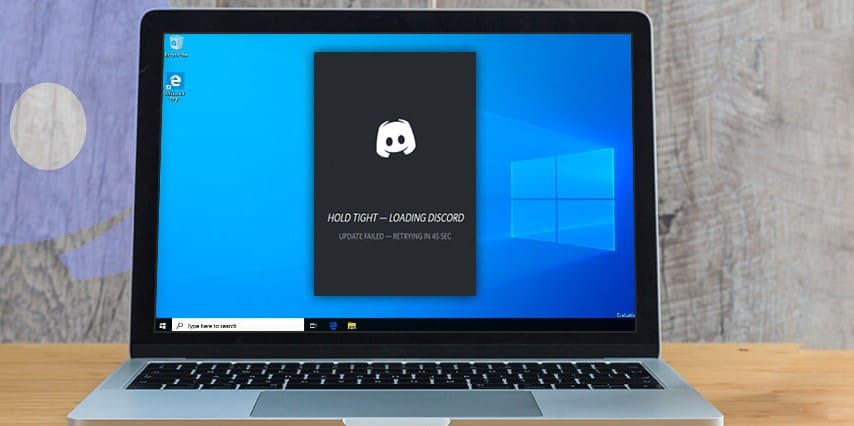
A person with a big ego has an inflated sense of self-worth and validation. Learn how to deal with egos in the workplace and during a strategic negotiation.
Dealing with egos is a chore. Whether they regularly cut you off mid-sentence, refuse to see your point of view, or irritate everyone by talking endlessly about themselves. It’s worse when you enter into a negotiation with someone with an inflated ego.
Ego clashes at work are harmful to the organization, group dynamics, and employee morale. Individuals with a negative big ego display undesirable and condescending personality traits like arrogance or hubris that ultimately make them less likable. Diversity, equity, and inclusion are crucial in the workplace. Leaders must learn how to deal with egos in both the workplace and strategic negotiation.
What Qualifies as a Big Ego?
Ego refers to your sense of self-esteem or self-importance. There’s a difference, however, between having a big (weak) ego and a healthy ego (personality).
It’s common to use “having a big ego” in the negative. A person with a weak or big ego needs constant validation. He or she feels threatened by anyone they perceive as more intelligent, attractive, or having a comparatively more of a desirable trait than them.
On the other hand, a healthy ego is akin to having a strong personality. However, there exists a difference between the two. You display personality traits outward, such as charm, attractive, kind or generous. Ego, however, is hidden underneath (inner persona). In terms of psychoanalysis, the ego is a superficial part of the id (your impulses or inclinations).
Persons with big egos have:
- An exaggerated sense of self-esteem
- Hyper-inflated feelings of self-importance
- An extreme need for admiration
- A lack of empathy
- Selfish needs and interests
- Difficulty seeing opposing points of view.
They usually show arrogant, manipulative, and self-centered behavior and almost always blame others for their inadequacies or failures.
How Ego Plays a Role in Negotiation
Ego plays a role in any strategic negotiation whenever people start thinking in terms of competitiveness or scarcity (e.g., “a must-win attitude”). The ego’s need for approval, to be right, superior, or offended, often confronts the parties to a negotiation.
Once you understand your ego’s needs as well as the egos of others on the negotiating table, it becomes easier to avoid its attempt to manipulate the negotiation. Of course, it is possible to use someone’s ego against them, for instance, when you threaten to walk away during an impasse. Most people’s egos won’t allow them to lose or walk away from a profitable deal.
Egos play a significant role during the information-gathering stages of many strategic negotiations. It’s common for most people to love hearing themselves talk. Thus, they readily give away crucial information. Some consciously set aside their egos to gather the information power efficiently and effectively.
As such, it is best to understand the ego’s role at the beginning of every negotiation you walk into and how it may affect proceedings later. For instance, playing dumb and stroking the other parties’ egos may be detrimental in the end because they will discover the truth eventually. You then risk losing your credibility and trust.
Ego can also be quite harmful at the close of a negotiation. How? It undermines parties’ rational decision-making and causes them to ignore strategically concrete agreements. It is incredible how many deals go south because of inflated egos. It is not uncommon to watch otherwise rational people throw caution and leverage out of the window. Some even ignore their independent standards or offers and concession strategies.
Why?
Because some people cannot stomach the perception that someone else outdid or beat them. Their egos have driven them to want to win more than to reach an agreement that meets their interests.
Generally speaking, people run out of valid arguments and, in the process, tend to justify a lot of what they say. The more clarification they give and defensive they get towards a particular issue, it becomes their position. Therefore, they pivot around it and become more committed to it. Subsequently, it becomes difficult to depart from their respective positions, and it plays spoilsport.
How to Deal with Egos in a Strategic Negotiation
A skilled negotiator adept at reading people and situations will resist the temptation to allow ego and emotion to color their judgment.
Position and interests are common in the context of negotiation. It’s always advisable for all parties to adjust their positions and uncover the underlying interests to arrive at a win-win situation. The critical thing to remember is that negotiation is not always about pride or competitiveness.
So the question arises, how do you counter your ego’s detrimental impact – or take advantage of that of your counterpart?
- One, remain consciously aware of the impact of ego during the information-gathering stages of strategic negotiation.
- Reign in your ego, ask the right questions, and get the other side talking.
- Take a step back towards the end of the negotiation to ensure that the last offer available suits your interests. If it does not, and you risk losing money by accepting it, then walk away.
- Listen to your counterparts carefully and note if they talk openly about winning or appear highly competitive. If these are present, keep vigilant of the egos involved.
Everyone has an ego. The critical issue here, though, relates to its size, visibility to others, and its impact on the negotiation process. One rule of the thumb that never fails: check your ego at the door.
How to Deal with Egos at Work
These approaches can prove crucial in dealing with employees with big egos and should be part of your employee development plan.
1. The Sandwich Approach
It involves giving a compliment, suggesting how to improve and giving another praise to sandwich the criticism and stroke the person’s ego. It’s a delicate balance that requires experience and emotional awareness to perfect your delivery. Remember to maintain a level head and understand that an inflated ego is someone’s personality, and it is nothing personal.
2. The AIC Approach
AIC refers to acknowledgment, improving and committing. First, acknowledge the person in question with constructive remarks or praises, improve your sentences by avoiding any negative words such as “bad” or “worse.” Then attempt to get a commitment from the person.
3. The Golden Goose Approach
As a team manager or leader, controlling, coordinating and utilizing the abilities of every member of your team is vital – as it is to put egomaniacs in their place. First, give their ego a big boost by praising them (on condition that they did a great job) and portray them as the standard (the golden goose).
Once the confidence oozes in, introduce them to the most challenging tasks and speak as if you expect them to ace the work just as they did earlier. Make them feel like an invaluable part of the team.
On the next assessment, conduct an honest review of their work. Suppose the employee performs well, praise them and give them more challenging tasks. However, if they fail or perform poorly, remind them of their past accomplishments. They will either work extra hard to add more value to the team or keep their egos in check the next time around since the failure humbled (or humiliated) them.
4. Use Their Strengths to Your Advantage
Every person has some strengths, even individuals with precipitous egos. It can be infuriating and frustrating to know that sometimes egotistical individuals are exceptionally talented. Failure to utilize these skills can flare up their ego and lead to a tense workplace environment. Therefore, it’s advisable to capitalize on these strengths and enlist their help in sharing their knowledge and improving employee engagement.
5. Reinforce Positive Behavior
Praise and appreciate any of your egotistical team members whenever they show restraint during arguments and ego clashes with colleagues. Acknowledging that they handled the situation maturely may encourage them to repeat that positive behavior in the future. They can also avoid falling back to their aggressive habits. Emotional intelligence is one of the skills of a good employee.
6. Put Your Foot Down
When everything else fails, you can always remind an egotistical team member who’s the boss. As the team leader, let them know that while you are willing to make some concessions, they have limits. Extend this willingness to listen to their ideas and suggestions but make it clear that you have the final word on all matters. Be firm but fair, and let everyone know it.
The Bottom Line
There are many resources to help you control and navigate negotiations. But if you don’t know where to start, here’s your first step. Earn a UC Davis Graduate School of Management certificate and develop and validate your skills through the Strategic Negotiations online short course. Led by expert Jim Olson, the six-week program will help you craft a foolproof negotiation strategy and skillfully navigate cross-cultural communication.
Your certificate of completion from a top-ranked U.S. university will be proof enough that you can confidently walk into any business interaction and come up with a win-win strategy. If you are seeking a self-paced professional development, then enroll in the Strategic Negotiations online short course offered by the UC Davis Graduate School of Management in collaboration with GetSmarter.
For more tips and opportunities like these, visit GetSmarter online or contact us today.


![[pii_email_c0872b2275c5451a2577]](https://www.allnetarticles.net/wp-content/uploads/2021/09/How-To-Fix-Error-pii_email_c0872b2275c5451a2577-in-Email.png)
![[pii_email_c75373ce5b34bf577425]](https://www.allnetarticles.net/wp-content/uploads/2021/08/Fix-pii_email_c75373ce5b34bf577425-in-3-Working-Ways.jpg)
